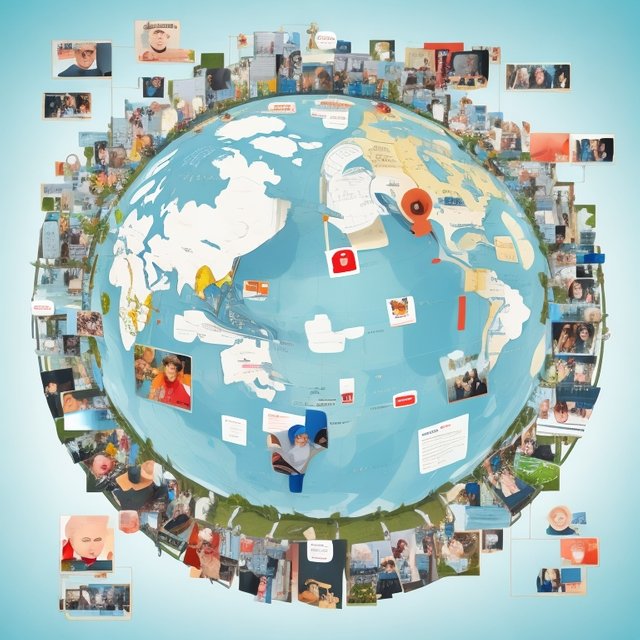Internet communities and social networks are two different but related concepts. An internet community is a group of people who share a common interest or goal and who interact with each other online. A social network is a website or app that allows users to connect with friends and family members and to share information with them.
Internet communities can be found on a variety of different platforms, including websites, forums, and social media platforms. Some examples of internet communities include:
Online forums for specific topics, such as gaming, technology, or parenting
Social media groups for specific interests, such as book clubs, sports teams, or hobbies
Online support groups for people with specific health conditions or other challenges
Social networks, on the other hand, are designed to help users connect with their existing friends and family members. Some examples of social networks include:
Facebook
Twitter
Instagram
LinkedIn
While internet communities and social networks are different in some ways, they also have some similarities. Both types of platforms allow users to connect with others who share their interests, and both types of platforms can be used to build relationships and communities.
Benefits of internet communities and social networks
There are many benefits to participating in internet communities and social networks. Here are a few examples:
Social support: Internet communities and social networks can provide social support to people who may feel isolated or alone. For example, people with rare health conditions or disabilities can find support groups online where they can connect with others who understand what they are going through.
Learning and development: Internet communities and social networks can be great places to learn and develop new skills. For example, people who are interested in learning how to code can join online forums or social media groups where they can ask questions and get help from other programmers.
Networking: Internet communities and social networks can be used to network with other professionals and to build relationships with potential clients and customers. For example, people who are looking for new jobs can use LinkedIn to connect with recruiters and to find job openings.
Entertainment: Internet communities and social networks can also be used for entertainment. For example, people who enjoy playing video games can join online gaming communities where they can play with other people from all over the world.
Challenges of internet communities and social networks
While there are many benefits to participating in internet communities and social networks, there are also some challenges. Here are a few examples:
Cyberbullying and harassment: Internet communities and social networks can be breeding grounds for cyberbullying and harassment. It is important to be aware of the risks and to take steps to protect yourself, such as using strong passwords and privacy settings.
Addiction: Internet communities and social networks can be addictive. It is important to set limits on your screen time and to make sure that you are not spending too much time online.
Misinformation: Internet communities and social networks can be used to spread misinformation. It is important to be critical of the information that you see online and to verify it with other sources before sharing it.
Conclusion
Internet communities and social networks can be valuable tools for learning, connecting, and having fun. However, it is important to be aware of the risks and to take steps to protect yourself.
Here are some tips for participating in internet communities and social networks safely and responsibly:
Be mindful of what you share online. Once you share something online, it can be difficult to control who has access to it.
Be respectful of others. Remember that there are real people behind the screens.
Be critical of the information that you see online. Don't believe everything that you read.
Take breaks from the internet. It is important to spend time offline and to connect with people in the real world.
If you are concerned about your safety or well-being online, please reach out to a trusted adult or to a mental health professional for help.
